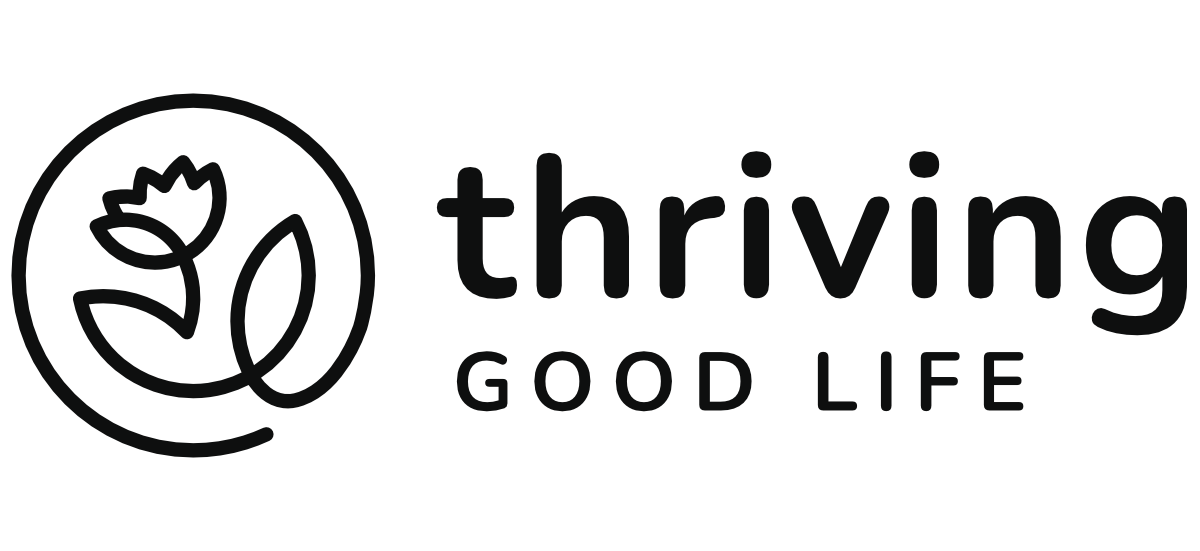You sit down. Open your journal and prepare to write.
Five minutes later you’re still staring at the blank page. Wondering: “What the heck should I write about?”
It’s frustrating. Especially if you’re new to journaling.
You’ve psyched yourself up to start it, but nothing’s coming out.
Shall I let you in on a little secret?
I’ve been there too. Staring down at a blank page. Sighing deeply as I search my brain for something meaningful to write about.
I now know two things: 1) whatever you write is going to have some meaning for you – even if it’s cloaked in randomness. And 2) find really good journal prompts, and hoard them.
In this article, I’m going to share 15 journal ideas for beginners, along with advice on how to use them, and a simple step-by-step process that will get you writing your first journal entry.
But first, here are a few themes you could consider as a new journaler.
Good Journal Topics for a Beginner
- Goals & Dreams: what do you aspire to do in life, and how do you intend to get there? Write about any obstacles or challenges, whether physical or emotional, and the impact they’re having on you.
- Change: the changing of the months, weather or seasons, or a new job, a house move, a new baby, a new pet, friendships or relationships – write about the change, and how you’re growing as a person.
- Pain & Struggles: reflect on the challenges in your current or past life; the fears, guilt, heartbreak. The emotions associated with pain and struggle need to go somewhere, so use your journal as a way to vent, process, and release. As my old nan used to say: “Better out than in”.
- Victories: the areas in your life that you’re winning and succeeding at. What sacrifices have you had to make, or are currently making, and how that makes you feel?
- Gratitude: write about the things, people, situations, and moments that you appreciate for bringing you happiness, peace, and joy.
A Simple Process for Writing Your First Journal Entry and Beyond
- Set the intention that you WILL write something in your journal today.
- Gather your materials – a beautiful notebook to write in, pen, journal prompts (see below).
- Decide how much time you can spare. 5 mins? 10? 30?
- Schedule your journaling day in a planner or calendar, and set a reminder so you don’t forget.
- Find a spot where you won’t be interrupted.
- Set a timer (optional).
- Open your journal, add the date, and write your entry.
For a more in-depth process, read my ultimate guide on how to start a journal for beginners.
The most important part of the process is this:
Embrace your journal – messy parts and all. So your handwriting looks scrappy, there are annoying spelling mistakes, and your punctuation is all over the place.
But I’ll tell you point-blank; none of that matters.
What matters is that you’ve written something in your journal today. Lavish your attention on that, not your need to make everything perfect.
15 Simple Journaling Ideas for Beginners
Use the following prompts to kickstart your journaling journey.
Some are questions, others are simple exercises to encourage expressive writing. All are beginner-friendly. They’ll help you explore and reflect on topics you may not have considered.
You may find yourself connecting with some of these on a deep level, and others not so much. That’s okay. You’re allowed to be selective. Choose the prompts that work for you.
Now let’s jump straight in.
1. How are you feeling about (re)starting your journaling journey?
You and your journal are about to get real cosy. How does that make you feel? Excited, anxious, nervous, something else?
What’s causing these feelings?
Are you worried about not being able to maintain a journal practice?
Jot down some strategies for how you intend to keep your journal going. Just remember, strategies are nothing without the will to commit.
So, on a scale of 1-10 (with 10 being the highest), how likely are you to commit to journaling? Write that down in your journal.
2. Write about everything you did today
Write regardless of whether you think it’s boring, or insignificant.
Start from the beginning of the day… you woke up (clearly).
What’s the first thing you did? What outfit did you wear? Why that outfit? What did you eat? Where did you go? Who did you speak to? What events happened throughout the day?
What thoughts, feelings, or emotions did you experience?
You can go as deep into this as you like.
3. What’s something you read recently that inspired you greatly?
This could be a quote, a passage from a book, an email, or a billboard message. Write the words down and study them.
Why do these words inspire you?
What do you feel when you read them?
4. What’s changed in your life since you were a child?
You grew into an adult. That’s obvs.
But think about how your life now compares to life then.
Maybe you don’t spend as much face-to-face time with your friends. Has today’s technology made things easier or harder to feel connected?
What was life like before mobile phones, social media, the Internet?
Which changes make you feel happy, sad, angry, hopeful, fearful, thankful? Explore your emotions.
5. Write about something you learned recently?
This could be something you learned about yourself, a subject or new skill.
How did you learn it – from a book, course, YouTube, conversation?
Write about the challenges or barriers to learning, and how you overcame them – finding the time, staying motivation, emotional blocks.
In what ways will you use this new information in your life?
6. Write openly and honestly about a crippling fear you have
Where did this fear originate from? From your childhood, an embarrassing encounter, a relationship that went wrong, a mistake you made?
In what ways does this fear affect your life? Think about the relationships you have, your career, goals, and dreams for the future.
What would your life look like if you no longer had this concern?
What small action can you take to start to lessen the impact?
If a friend had the same fear as you and wanted your advice on how to tackle it, how would you help them manage their anxiety?
7. When was the last time you had a good day?
Write about what made it so good.
Did other people contribute to this feel-good day? Who?
8. When was the last time you had a bad day?
Describe the series of events leading up to the bad experience.
As the events unfolded, what were the thoughts and emotions running through your mind? What steps did you take to give yourself some self-care, during or after the event?
Was there anyone you turned to for support?
If so, why this person? If not, why not.
What would you have done differently to lessen the impact of the day?
9. Write a letter to someone who has hurt you (but don’t send it)
Need to process a painful episode, but don’t want to confront the person who hurt you? Write them a letter.
Who was it that hurt you, and in what way? What are you feeling – angry, resentful, sad, scared, revengeful? Express exactly what you would say to this person if they were sitting across the table from you right now. Let them know you deserve better, and that’s what you’ll seek in the future.
By redirecting all the pain you’re carrying with you into a letter, you can start the process of letting go. Maybe even forgive them.
10. What are your core values?
Values aren’t just about what you consider important. They govern your behaviour and can help you make decisions.
Some values refer to how you want to represent yourself. For example; being honest and kind, standing up for yourself, having integrity.
Other values refer to what you want to accomplish or attain in life i.e. success, a simple life, a healthy mind, body, and soul.
Don’t know or aren’t sure what your core values are? This free resource will help:
[thrive_leads id=’8746′]
11. Write about one of the happiest moments of your life
What is it about this memory that makes you happy?
A moment of joyfulness experienced with a friend? A life-changing opportunity? Perhaps, it was a time when you felt your most genuine self. Or maybe it was the feeling of receiving love from another person.
Whatever the reason, hold onto this sense of joy as you write.
12. Write about an adventure that took you out of your comfort zone?
Not necessarily adrenaline junkie stuff like skydiving or cliff jumping (although it could totally be that).
An adventure is whatever you consider to be a challenge. Something you’re afraid of doing because it could lead to failure or disappointment.
Starting a business, doing a TED talk (or any other kind of public speaking gig), starting a family – these are all different types of adventures. Just not the kind you could lose a limb doing (well, hopefully not).
So, what’s your adventure?
Write about the feelings and emotions you experienced before and after you took the leap of faith. What was the motivating force that drove you towards this adventure?
Did you experience any resistance at the time? In what ways did you resist? What excuses did you make to NOT do the thing? And how did you overcome this initial reluctance to take action?
In what ways has this experience changed you?
13. Who are the people in your life that mean the most to you?
The people closest to us tend to be the ones who not only listen to us but hear us. They don’t judge or criticise your choices. They don’t need a reason to care; they just do, and they make it easy for you to trust them with your deepest thoughts and feelings.
So think hard about who your special people are. What impact do they have on your life? How does spending time with them affect your mood, confidence levels, and self-esteem?
14. Write about a tough decision you’ve made and how it played out
Tough decisions are tough because they require us to make some sacrifices: We find ourselves having to say no to one thing so that we can say yes to something else.
As you write about this prompt, think about what you had to give up and the emotions you felt before and after you made your decision.
What led to you making that decision in the first place? With hindsight, would you make the same choice again? Why?
What did you learn about yourself through the decision-making process?
15. What you are grateful for in this present moment?
While you could write broadly about your health, family, or a roof over your head, think about the little moments that are often overlooked.
Like helping a stranger, feeling the warm sun shining through your window, going to sleep in a comfy bed, or even being able to find the time to write in your journal.
What are those little moments for you?
Tips for How to Use Journal Prompts
Here’s how you get the most out of prompts.
Build a List of Prompts in Advance
Collect prompts that appeal to you, and hoard them for later use.
Write them down in your journal, or a dedicated blank notebook. Or add them to a spreadsheet. That way, when it comes time for you to crack open your journal, you’ve already got a pre-prepared list of ideas and inspiration.
No more wondering what to write.
Make a habit of searching for new prompts for your list each week.
Use Prompts in a Way That Suits You
Complete your prompts in any order you like.
It doesn’t have to be chronological. You can just randomly pick a prompt you feel called to answer in the moment.
Write about a different prompt a day. One a week. Or work your way through several related prompts in one sitting. Or focus on a different journaling theme, say each month.
You can even write different answers to the same prompt each time you journal. This works well with a gratitude journaling practice, where you ask yourself the same question every time: “What am I grateful for today?”
Skip or Rewrite Prompts You Aren’t Feeling
If you like the essence of a prompt but it doesn’t quite fit your situation, change it. Remember prompts are for inspiration.
Sometimes you’ll find your answers veering off the subject. That’s fine. You don’t need to rigidly stick to a prompt if it’s not right.
Every now and then you’ll come across a prompt you don’t like. If you don’t feel compelled to write about it, move on to the next one.
Share Your Prompts With a Romantic Partner
Are you curious about what your partner is thinking or feeling? Convince your other half to answer the same prompts as you.
You’ll get greater insight into their thoughts, learn a bunch of stuff you may not have known, and bond on a deeper level.
Plus, it’ll be a fun couple activity to do on a date night.
Would you like more ideas? Here’s an extensive list of couple journal prompts to help deepen the emotional connection.
Write as Much or as Little as You’d Like
Don’t feel as though you need to write pages and pages. I mean you can if you’d like. But know that it’s okay to write a short sentence or two.
Remember it’s your journal. You set the rules.










